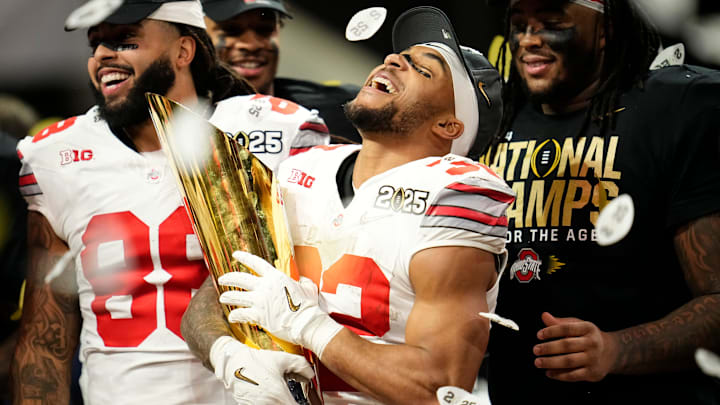Strength of schedule means more in 2025. Politicking at playoff time will be more intense.
The College Football Playoff Committee announced last week that it has “adjusted (SOS metric) to apply greater weight to games against strong opponents. An additional metric, record strength, has been added to the selection committee’s analysis to go beyond a team’s schedule strength to assess how a team performed against that schedule.”
SEC supporters were upset last year when Alabama, South Carolina, Ole Miss, Missouri and LSU were left out of the playoffs. After all, they'd run a gauntlet.
Jackson Arnold has over 100 yards passing and rushing tonight against Baylor.
— SEC Numbers Guy (@secnumbersguy) August 30, 2025
The last Auburn quarterback to have 100 yards passing and 100 yards rushing in their Auburn debut: Cam Newton
Jackson Arnold for Heisman?
pic.twitter.com/OQMtiLNNeu
While 10-2 seemed a reasonable target for making the 12-team playoff in its first year, the new emphasis throws a "not so fast, my friend" at the mascot headgear. Not all schedules will stand up to the SOS scrutiny. The committee makes the rules.
Which is better, 11-1 in the Mountain West, or 9-3 in the SEC? What about a 10-2 Big Ten team with no Top 25 wins?
For a team like the Ducks, it could get sticky. There's more parity than ever in college football with NIL, the Transfer Portal and revenue-sharing leveling out talent distribution-- players want to go where they can start and make money, and most teams have less depth than before.
Conference races might get more competitive and more bunched, with fewer dominant teams and more programs in the 8-4/9-3/10-2 range.
Dylan Raiola's first TD of the 2025 season 💪
— The Athletic CFB (@TheAthleticCFB) August 29, 2025
🎥 @espn pic.twitter.com/sdiy0htQ2y
For a team like the Ducks, even a 10-2 finish might not be enough, and 9-3 probably falls on the wrong side of the cut line. Here's why: Oregon's nonconference schedule and opening month of the season features three not-likely-to-be-very-good teams in Oklahoma State, Oregon State and Northwestern, plus the opening game against FCS Montana State.
A 4-0 start is expected and won't gain the Ducks much ground in the strength of schedule calculation. Say they lose to Penn State, then perhaps Iowa, Indiana, Iowa, Minnesota, USC or Washington to finish 10-2.
The Ducks will be favored in all six of those games, but the probability of winning all of them isn't high.
For example, Oregon is currently an 81% favorite to beat Indiana. The chances of winning six such games (Iowa, Minnesota, etc.) is 34%.
Assuming the Big Ten has a bunch of 8-4/9-3 teams, the Ducks might have a record of 10-2 or 9-3 with no more than one or two wins over the Top 25, and losses in their two or three biggest games. That would leave them in danger of being lobbied out of the playoffs.
The only solution is to win them all and leave all the politicking to everybody else.
It's likely to be a year of parity in college football with few real dominant teams, which will only fuel the clamor for expanding the playoffs. For a coach, the assignment is to get his team to focus on each opponent, this game, and leave all the schedule strength calculations to the committee.
Personally, I hate the idea that the playoff bracket could be decided in a hotel meeting room. Fans and players deserve better.
2025 Season Trailer:
— Oregon Football (@oregonfootball) August 29, 2025
Birds Aren’t Meant To Fly Alone.#GoDucks pic.twitter.com/evg26M5JzN
